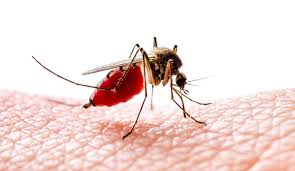
Union Health Secretary Reviews Dengue Preparedness Ahead of Monsoon
Union Health Secretary Apurva Chandra recently chaired a high-level inter-ministerial meeting to assess the dengue situation and preparedness across nine high-burden states. The meeting, conducted in hybrid mode, involved discussions on the prevention, containment, and management of dengue, particularly in light of the approaching monsoon season.
The review included participation from the Ministry of Housing and Urban Affairs (MoHUA) and key officials from Delhi, Gujarat, Karnataka, Maharashtra, Rajasthan, Tamil Nadu, Telangana, Uttar Pradesh, and West Bengal. Eighteen municipal corporations, including major cities like Ahmedabad, Bengaluru, Chennai, Delhi, Hyderabad, and Mumbai, also joined the meeting virtually.
Chandra emphasized the importance of coordinated efforts among various stakeholders, including the Urban Development Ministry, state governments, municipal corporations, and local self-government bodies. He stressed that timely and effective management of dengue outbreaks requires a united approach.
Highlighting recent trends, Shri Chandra noted that dengue cases have been increasing over the past four years. As of July 31, 2024, the number of dengue cases this year is already nearly 50% higher than at the same time last year. The disease typically peaks during the monsoon months of August, September, October, and November, making pre-emptive measures crucial.
The Health Secretary noted a significant decrease in the Dengue Case Fatality Rate, which has dropped from 3.3% in 1996 to 0.17% in 2023, thanks to focused and collaborative efforts. He urged states to ensure effective hospital management of dengue patients, enhance vector surveillance, and identify hot spots for targeted action. Shri Chandra also called for improved availability of platelets and hospital resources to further reduce the fatality rate and assured states of support in combating dengue.
In addition to these measures, Shri Chandra advocated for increased collaboration between the Health Ministry and MoHUA. He proposed the development of a Joint Action Plan to maximize impact and called for the Urban Development Ministry's support through cleanliness drives, especially during the peak dengue season.
S.P. Singh, Additional Secretary at MoHUA, outlined the steps taken to prevent and control dengue, including the "Safai Apnao, Beemari Bhagao Campaign" and the Swachh Bharat portal. These initiatives focus on monitoring and eliminating stagnant water and preventing waterlogging, which are critical to controlling the spread of dengue.
The Health Ministry has implemented several strategies for dengue prevention and control, including disease and entomological surveillance, case management, vector management, outbreak response, capacity building, behavior change communication, inter-sectoral coordination, and monitoring and supervision. Key initiatives include increasing sentinel surveillance hospitals from 110 in 2007 to 848 in 2024 and updating national case management guidelines.
Dengue remains a major concern, with urban areas experiencing a higher concentration of cases due to factors such as rapid construction, inadequate waste management, and improper water storage practices. In 2022, India reported 233,000 dengue cases and 303 deaths, and in 2023, the numbers rose to 289,000 cases and 485 deaths. Urban areas have contributed a growing share of cases, accounting for approximately 68% in 2023.
The meeting concluded with a call for continued vigilance and collaboration to effectively manage and prevent dengue outbreaks as the monsoon season approaches.